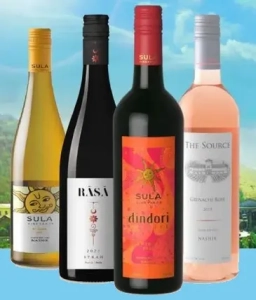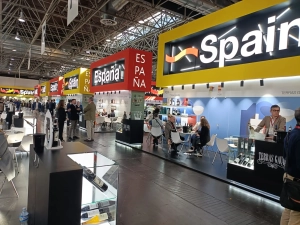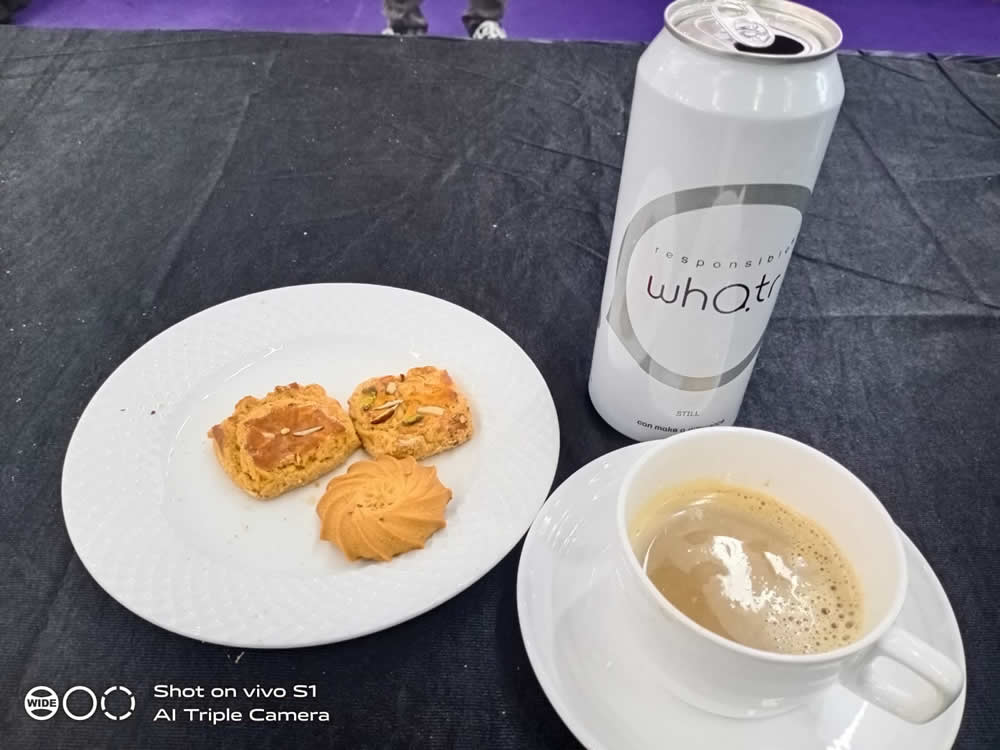
Dry Day substitute for cheese and wine on a normal day Masterclass at Vinexpo India!
Delhi Excise plays Spoilsport at Vinexpo India 2022

With a very strong participation from the foreign participants including the European Union, Spain, Italy, France, Australia, South Africa, Austria, Portugal, Hungary and of course India, there was a significant increase in the wines from overseas. These producers had naturally imported enough wine to last 3 days for tasting- note that all wines at the Show are duty paid but as a condition of the license no bottle may be taken out of the exhibition ground. The bottles have to be stored at the excise warehouse of the Licensee and any leftover bottles have to be destroyed according to predefined procedure.
At the best of times, one has not seen what happens to the bottles so deposited with the excise licensee at the Show and it is just a black hole. The exhibitors-especially the international participants were extremely upset, firstly because they lost the opportunity to reach the audience they would have on the third day but also because their wine was confiscated-for no fault of theirs. They could not even take out samples to show to the importers who matter but did not visit.
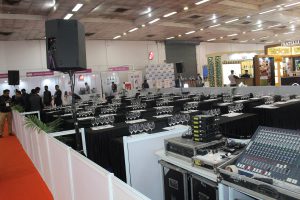
The organisers cannot be blamed since the excise license is awarded just a day or two before the show and though there was speculation when the election day was announced as 4 December that December 2 might be a Dry Day as is a past practice for 48 hours before the end of voting period. There are reports that the organisers are considering partially compensating the participants as a gesture of goodwill even though the Indian participants simply go by the law grudgingly, but the message ought to go to the Excise department that wines are only tasted and not drunk at any B2B wine show and it would have been a prudent decision-and a step in improving ‘Ease of Doing Business in India’ if the government had taken the pragmatic decision to allow the tasting strictly within the licensed area. Alas, that was not the case and many of the producers vowed not to come back to India for business, thanks to the immense loss suffered.
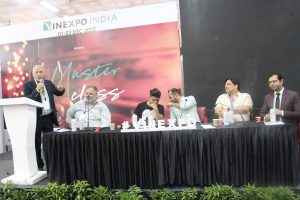
Another alternative would have been to at least allow the display of bottles at the stand but this would not be as simple as it appears at the first instant, but nevertheless pragmatic.
Masterclasses a grand success
Masterclasses have become a backbone of Vinexpo India and despite no wine served on December 3, the 15 Masterclasses were held on schedule, the last one finishing at the scheduled 5 pm but with a marked reduction in the number of attendees. The organisers had installed a coffee/tea machine and provided cheese platters and cookies to compensate in the only way they could. But it did disrupt the continuous run of a record 39 Masterclasses in which wine had been served in every session since Vinexpo India debuted last December in Delhi and later in Mumbai.
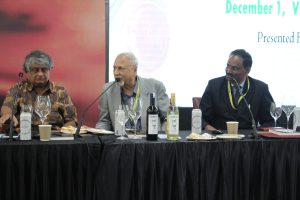
The three Masterclasses conducted by Cav. Subhash Arora for the European Union (EU-1, EU-2 and EU-3) were among the more successful ones because they were procured from Indian importers and as such better quality and diverse wines could be selected. It helped that the concerned importers were invited to join at the Head Table to supplement the Presentation by Arora. Since only the consumable wines were procured for the 3 classes that were organised on the first two days, there were no wine leftovers to fume about.
Other Masterclasses with guided tasting of wines were from YECLA Spain and also South Africa. A pleasant surprise was the Masterclass on exotic Hungarian Wines by Dr. Mariann Erdö, Director Counsellor of Liszt Institute at the Embassy of Hungary, who showcased 7 wines including the world-famous Tokaj, reinforcing my belief that these wines deserve a Retail shelf space in India. Our own Desi wines were represented by Good Drop Wine Cellar and Hill Zill Wines.
The Keynote Address was delivered by Ravi Viswanathan, Chairman of Grover Zampa Vineyards, who had flown specially from Singapore. As forthright as ever, he stressed that Indian wines now compared with the best in the world and in blind tastings would not be behind comparative international wines. Many of the 3 star Michelin starred restaurants had them on their list in Europe but the obsession of Indians deprecating everything Indian was a hurdle in marketing Indian wines. He was very welcoming to the FTAs with Australia and the work-in-progress EU India FTA and asserted that they could compete with them.
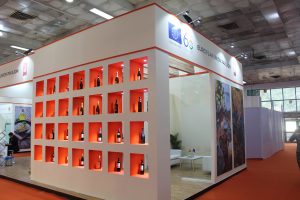
Mr. K.N. Singh IAS, the dynamic officer from the Government of Meghalaya is passionate about fruit wines and is confident that Meghalaya would become the Fruit Wine Capital of India. He is encouraging new wineries to come up and trying to have the excise laws streamlined. The Guest of Honour disclosed that he planned to have a National Symposium on wines in Meghalaya where he would invite various stakeholders from Pan India in the next few months. He had also brought a delegation of wine professionals for exposure to the main-stream industry.
The next edition of Vinexpo Delhi will be held on 7-9 December and one keeps fingers crossed that no such obstruction comes from the excise department which was otherwise quite helpful and positive in its approach to licensing. The 2-edition strong Show has taken long strides and is set to leapfrog ahead, with co-location with SIAL India, the powerful international food show and is aiming to become the leading Show for wines and spirits.
Subhash Arora


